
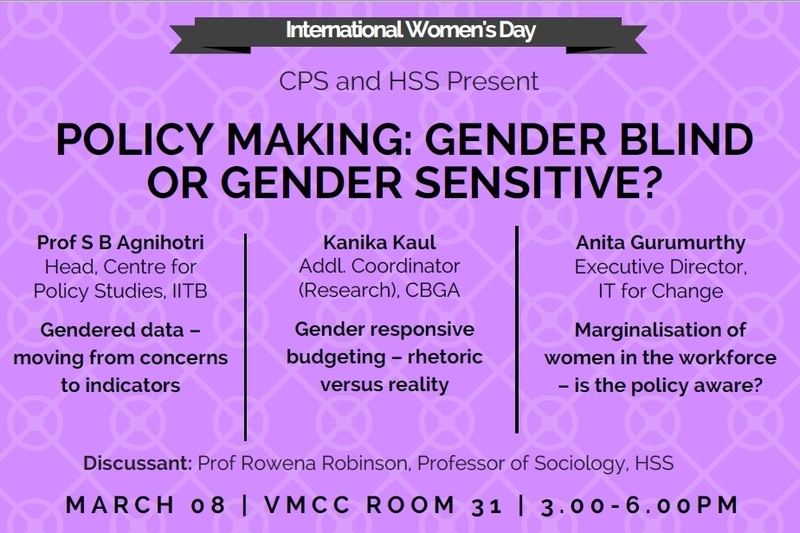
Abstract
When gender is discussed in the context of policy, whether in government circles or in academia, more often than not this is taken to mean policies that solely concern women and, to some extent, children. Gender policy is then restricted to maternity health and leave, the wage gap, policies relating to gender-based and sexual violence, and so on. Health and education policies have, no doubt, included gender as a very important factor and this has shown positive results.
Most fields do not look at policy solutions through a gendered lens because it is assumed that gender does not play a role in these fields. While feminists have spent decades fighting for greater gender representation in policy, this is yet to be mainstreamed. Including women as stakeholders in the policy-making process can expose policy makers to complex and nuanced issues that have been previously overlooked. Ensuring that policies use a gendered lens can make these policies not only more successful but also more meaningful.
This panel discussion will address these issues and will talk about the positive impact of embedding gender sensitivity into the policy process as well as the adverse effects of policies that are gender blind. Specifically, the panellists will look at the importance of having gender disaggregated data, gender responsive budgeting, and whether and how policy approaches the inclusion of women in the workforce.
Discussing ‘Gendered data – moving from concerns to indicators’, Prof Agnihotri will initiate the discussion by emphasizing the need for gendered data and how this data can be used to create and implement gender sensitive policies.
In her talk ‘Gender responsive budgeting – rhetoric versus reality’, Kanika Kaul will address the nuances of this fiscal policy adopted by the government, particularly focusing on violence against women, the gaps in the policy, and will highlight what can be done to make planning and budgetary processes in the country more gender responsive.
Anita Gurumurthy will speak on ‘Marginalisation of women in the workforce – is the policy aware?’ She will discuss structural and conceptual framings of women, society, and economic agency, especially in the context of 21st century techno-modernism.
About the Speakers
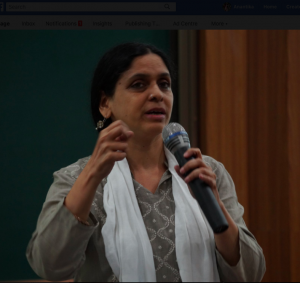
Anita Gurumurthy, Executive Director, IT for Change.
Anita is a founding member of IT for Change, an organization that strengthens human rights, social justice, and equity through digital technologies. Unlike other ‘digital technologies for development’ that tend to adopt a market-fundamentalist approach or a techno-utopic approach, IT for Change attempts to reframe the discourse and base it on principles of social justice.
At IT for Change, Anita leads research collaborations and projects in relation to the networked society, with a focus on governance, democracy and gender justice. Anita engages actively with policy makers, practitioners, social movement activists and the academic community to expand and deepen conversations on the public policy imperatives of the intertwining of the digital in all spheres of life.
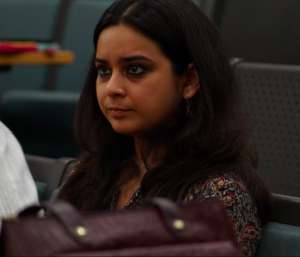
Kanika Kaul, Additional Coordinator (Research), Centre for Budget and Governance Accountability (CBGA).
CBGA, a non-profit organization, works towards enhancing transparency and accountability in governance through rigorous analysis of policies and budgets, and fostering people’s participation in public policy processes by demystifying these processes.
As Additional Coordinator of Research, Kanika specializes in research and capacity building efforts on Gender Responsive Budgeting, focusing on its implementation across the country. She also works on other issues relating to women, such as fiscal policy measures for prevention and redressal of violence against women. Her areas of interest also include drinking water and sanitation.
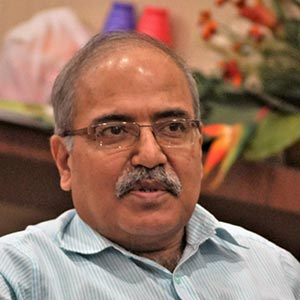
Prof Satish Agnihotri, Head, Centre for Policy Studies (CPS), IITB.
CPS aims to be a Centre that facilitates dialogue between academia, government, and grassroots-level stakeholders in order to analyse and produce inclusive public policies. Laying emphasis on evidence-informed research, inter-disciplinarity, and principles of inclusive development, CPS offers students of public policy a space to deliberate, research, critique, and create policy solutions that are contextualized and relevant.
Prof Agnihotri is a former career bureaucrat and has held senior positions in various departments including the Department for Women and Child Welfare. He has written a book on the declining sex ratios in India and continues to do research on issues relating to gender, child malnutrition, and energy access inequalities. Prof Agnihotri is also the Head of Centre for Technology Alternatives in Rural Areas (CTARA), IITB.
Discussant
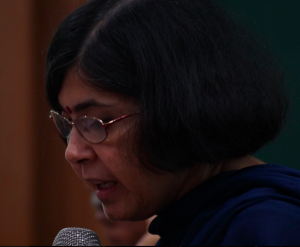
Prof Rowena Robinson, Professor of Sociology, HSS Dept., IITB
Prof Robinson’s research interests include anthropology of corruption, constitutional law, sociology of higher education, sociology of religion and kinship, conversion, and Christianity in India. She has also taught at the Delhi School of Economics, DU, and JNU.